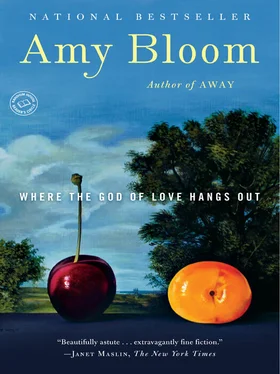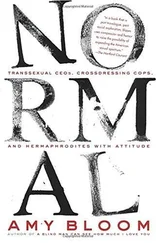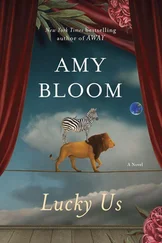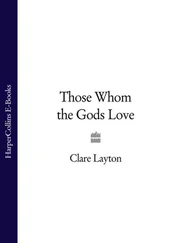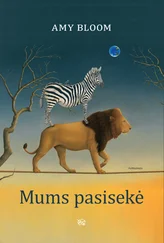RHRC:Tell us a little about your choice to write interlocking stories, as opposed to a novel or a single story?
AB:Perhaps one of the more striking aspects of both quartets is that they don’t just cover long periods of time in the life of my characters, they were also actually written over long periods of time — years. One quartet took me seven years to finish and the other sixteen years. Linked short stories are a wonderful way for me to split the difference between the range and scope of a novel and the compression and pace of a short story.
RHRC:The Lionel and Julia story “Sleepwalking” first appeared in your celebrated collection Come to Me . What was it like for you as a writer to revisit these characters in this collection? How did your understanding of the characters evolve over time?
AB:Of course I wouldn’t have revisited them if I hadn’t felt they had more stories in them and I could begin to see them in new ways. Two aspects of the quartets that were most gratifying: first, that I think I have become a better writer and am more able to put the skills I have in the service of my characters; and second, as in life, time gives you the opportunity to see events differently and to understand the actors in ways that were not possible the first time around. For example, although I always felt a great deal of sympathy for Julia it was only in the last story that I could really feel both the loss that had shaped her life and her unwillingness to yield to that.
RHRC:Children, stepchildren, and the love between a parent and a child play a central role in many of these stories. At many times in this collection, the love for a child is in conflict with romantic love. Why did you choose to write about how people balance different loves?
AB:When is romantic love not in conflict with a child — if you have children? It is a wonderful, moving, heart-filling experience to sit with the man or woman you love and your beloved children and know that all are happy to be just where they are with each other and loving one another. This doesn’t happen very often. Somebody has taken somebody else’s sweater, somebody has driven the car without permission, somebody is making a terrible choice in a career or fiancé, or someone is ill, or the adults are putting a good face on misfortune for the sake of the beloved children, or the beloved children would rather be somewhere else.… Seems to me that family life is a long ride full of ups and downs, moments of sartori-like bliss, and moments when you feel like you’re in a second-rate sitcom.
RHRC:In the William and Clare stories, you write about the love between two people, but their relationship ripples throughout the lives of their families. You seem to be exploring the way love touches people at their core and also at the more superficial but important edges. Why did you choose to move in this direction?
AB:The ripple effect of love, of hate, of indifference, the consequences of one’s actions, are always of interest to me. In Come to Me , I wrote a story about a woman who chooses to go back to her husband rather than go off with her lover, not because she couldn’t bear to hurt her husband and her children but because she felt she would be an inadequate and unhappy stepmother, and, in the end, a bad wife to a second husband. In the William and Clare stories, part of what I was writing about is that in midlife, in the face of an unexpected and powerful love, one has a lot to lose. Inevitably, there is loss, some of which people recover from and some of which they don’t — another theme of mine.
RHRC:You are known for your titles, and the stories in this collection are no exception. Tell us a little about how you chose these titles.
AB:“Where the God of Love Hangs Out” is a little unusual for me because of the colloquial phrase “hangs out.” I ended up choosing that in part because it reflected the setting of that particular story, which is a dive in a dying town. My hope for every title is that it actually adds something to the story. It doesn’t summarize it and it doesn’t preview it, it gives something to the story that wouldn’t be there otherwise.
RHRC:Tell us a little about your writing process. Also, what writing projects are you currently pursuing?
AB:My writing process such as it is consists of a lot of noodling, procrastinating, dawdling, and avoiding. I usually write fiction in the afternoon. I am currently at work on a couple of television projects — one about family, one about cops — and another novel, which is about sisters, parents, psychics, orphanages, and vaudeville.
READING GROUP QUESTIONS AND TOPICS FOR DISCUSSION
1. Why do you think Bloom chose to tell the stories of Lionel and Julia and William and Clare through a collection of interlocking stories? Does this device allow Bloom to reveal something that a single story or the novel form would not? Can you read the stories individually, or must they be read only as a collection?
2. What do the titles of these stories tell us about what is going on below the surface? For example, what does “The Old Impossible” suggest about William and Clare’s love? Or “Night Vision” about Lionel and Julia’s relationship?
3. In these stories, Bloom explores love in many forms — old friendships, marriage, parenthood. What are some of the other types of love relationships found in these stories? Which ones are unexpected? Which are forbidden or secret?
4. Which characters transgress the boundaries of their relationships with other characters? How do these transgressions change the nature of the relationship? Which actions damage a relationship forever? Which relationships cannot be repaired? What price do they pay for their transgressions?
5. Many of Bloom’s characters play multiple roles — mother, sister, daughter, wife, lover. Do these roles, such as husband or wife, provide safety? If so, what happens when these labels are undermined? Explore the many roles assumed by William and Clare at the beginning of their relationship — not only with each other but also with the other characters. How do these roles change by the end of “Compassion and Mercy”?
6. Does love change over time? What is the nature of love in the second half of life? How does love toward the end change our understanding of its beginning? In “Between Here and Here,” the daughter undergoes a transformation in her understanding of her father as he ages. How do you understand his change in behavior and her feelings toward him? How do Lionel’s feelings about Julia evolve as she ages?
7. Many love stories explore only the mysteries and wonders of love, but Bloom goes further and often writes about love’s darker side. What are some of the casualties of love in these stories? What happens when love ends, either by choice or, which it always does, death?
8. Many of the most important scenes in these stories happen around the dinner table as the characters share a meal or a drink. What role does food play in each of the stories? How do we understand William and Clare sharing nectarines in “The Old Impossible”? Or Lionel teaching Buster to eat a peach in “Fort Useless and Fort Ridiculous”? How does the family Thanksgiving tradition evolve over the Lionel and Julia stories, and what does this reveal about the family?
9. What are some of the secrets kept in these stories? How do secrets affect love? How do they define the love relationships?
10. In the story “Where the God of Love Hangs Out,” Ray and Ellie remind each other that they vowed to love each other “for better or for worse.” Do you agree that love must be able to contain both? What were some of the “for betters” in these stories? What were some of the “for worses”?
Читать дальше
